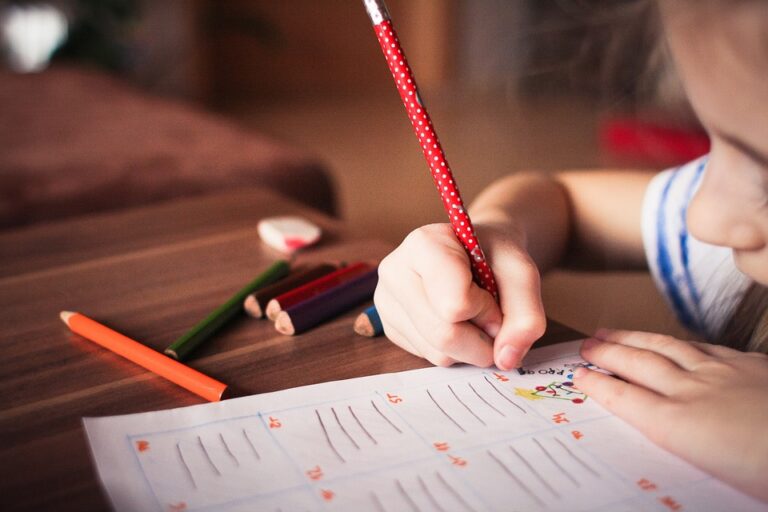
From Mischief to Mindfulness: The Evolution of Cognitive and Emotional Development in Children
Childhood is a remarkable period of growth and transformation, characterized by a ceaseless exploration of the world around us. As children transition from infancy to adolescence, their cognitive and emotional abilities undergo an incredible evolution. This article delves into the fascinating journey from mischief to mindfulness, exploring the various stages of cognitive and emotional development in children.
In the early stages of life, children are like sponges, absorbing everything they encounter. This period is marked by curiosity and a rapid development of cognitive abilities. Infants start with basic reflexes, gradually progressing to more complex actions such as reaching, grasping, and crawling. As their motor skills develop, children enter the world of exploration, eagerly trying to interact with objects and people around them.
During early childhood, typically between the ages of two and five, cognitive development enters a phase of significant growth. Children acquire language skills rapidly and develop the ability to think symbolically. This is evident in their engagement in pretend play, putting themselves in imaginative scenarios while using objects as representations of other things. This stage also marks the beginning of the development of executive functions such as attention, memory, and problem-solving.
As children progress into middle childhood, their cognitive abilities become increasingly sophisticated. They begin to understand complex concepts such as cause-and-effect relationships and develop a more refined sense of logic. Their memory capacities expand, allowing them to recall past events and apply knowledge and experiences to new situations. This period is critical for the development of critical thinking skills and the ability to reason.
Simultaneously, emotional development in children undergoes profound changes. Toddlers and young children display a wide range of emotions but often struggle to regulate them effectively. Tantrums, outbursts, and mood swings are common as children try to navigate their growing emotional landscape. However, as they develop language skills and cognitive capacities, they gain the ability to recognize and label their emotions, and also start to understand the emotions of others.
During middle childhood, emotional development advances alongside cognitive growth. Children become increasingly aware of their own emotions and those of their peers. They develop empathy and the ability to resolve conflicts through communication. Furthermore, as their language skills improve, they can express their feelings more effectively, reducing the need for aggressive or disruptive behaviors.
In adolescence, cognitive and emotional development reach a whole new level of complexity. Teenagers acquire abstract reasoning skills, allowing them to engage in hypothetical thinking and consider various possibilities. They become more capable of critical analysis and understanding multiple perspectives, leading to their increased independence and autonomy.
Emotionally, the teenage years are a time of intense self-discovery and self-expression. Teenagers often experience heightened emotions and engage in more complex relationships. Peer influence becomes a significant factor as they explore their own identities and navigate the challenges of social interactions.
While the cognitive and emotional development of children and adolescents is fascinating, it is important to note that these stages are not linear or uniform for all individuals. Each child is unique, and their development may be influenced by various factors, including genetics, environment, and personal experiences.
In recent years, there has been increasing recognition of the importance of mindfulness in children’s development. Mindfulness practices can enhance cognitive abilities such as attention, self-regulation, and problem-solving, while also promoting emotional well-being and resilience. Teaching mindfulness techniques to children from an early age can provide them with lifelong tools for managing stress and enhancing cognitive and emotional development.
In conclusion, the journey from mischief to mindfulness reflects the extraordinary transformation of cognitive and emotional abilities in children. As they progress from infancy to adolescence, children acquire intricate cognitive skills, enhanced emotional awareness, and refined social competencies. Understanding these stages of development allows parents, educators, and caregivers to provide the necessary support, fostering a positive and nurturing environment for children to flourish and thrive.
Younger Glowing Skin - Discover Ancient Ayurvedic Secrets at DoctorIndiaHerbals.com
Explore One of the Largest Collections of Dinosaur-Themed Toys, Games, Gifts, Decor, and More at DinoAvenue.com
Discover Premium Design Elevator Shoes for Men and Women at LondonCobblers.com
Discover Hidden Family Destinations for Vacations at Places.Travelz.io
Find the Best Deals on Airfare and Hotels with Advanced Metasearch Technology at www.Travelz.io
30% off on Kids items
STEM science experiments for Kids
Premium Science Toys and experiments